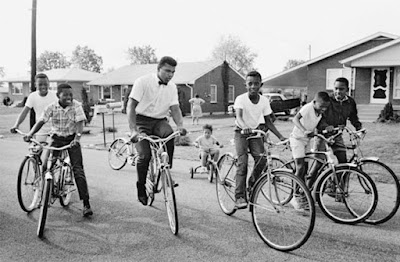Just after Hurricane Katrina, I talked with Bill Laine, the now-retired owner of New Orleans-based Wallingford Bikes.
Katrina devastated the city, prompting an unprecedented total evacuation. Some folks defied the order and took advantage of the desolation by looting homes, stores and warehouses.
Bill explained that his business was spared because, he thought, thieves probably were looking for bikes but found saddles (The biggest part of their trade was in Brooks), bags and other parts and accessories.
These days, thieves know better. COVID-19 pandemic-induced shortages have affected bike parts as well as complete bikes. One result has been a spike in bike thefts as well as burglaries and robberies of bike shops.
Some seemingly-professional thieves in Germany have moved up the food chain, if you will. As a truck driver took a break at a rest stop, a well-organized gang released sleeping gas into the vehicle’s cab and raided the trailer filled with Shimano parts destined for BFI, the Czech Republic’s largest bike producer.
One particularly disturbing aspect of this crime, as a BFI spokesperson explained, is that it seemed to be intricately pre-planned to the point that “in all likelihood, the truck had been followed from the time it was loaded.” Also alarming is that the thieves knew what they were looking for: They left nine boxes of low-end parts but took the more expensive components.
This story reminds me of something I reported when I was writing for local Queens and Brooklyn newspapers: Car thieves were turning their attention away from luxury vehicles in affluent neighborhoods to good, solid everyday cars like the Toyota Camry in middle- and working-class neighborhoods. Those cars were targeted because they proved more lucrative when sold to “chop shops” for parts.















